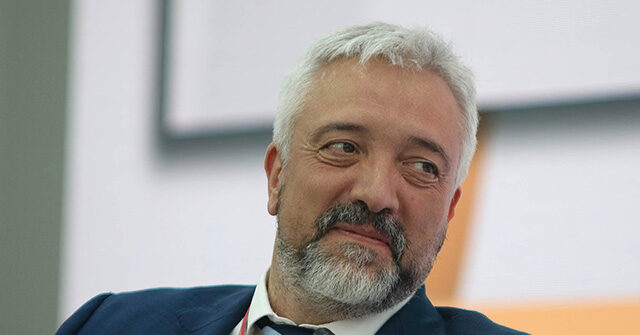Yevgeny Primakov, head of Russia’s “cultural diplomacy” agency Rossotrudnichestvo, said on Tuesday that his government plans to launch a foreign aid and development program modeled on the U.S. Agency for International Development (USAID) – the agency the Trump administration folded into the State Department due to its profligate spending.
Rossotrudnichestvo, formally titled the Federal Agency for the Commonwealth of Independent State Affairs, is an organ of the Russian Foreign Ministry that was established in 2008 to spread Russian influence abroad.
The agency is supposed to do this by promoting Russian culture and Moscow’s views on humanitarian affairs. Since most of the world does not keep Moscow high on its list of places to seek humanitarian wisdom, Rossotrudnichestvo has been criticized as little more than a Kremlin propaganda and espionage operation. It was sanctioned as such by the European Union in 2022 for being one of many Russian institutions that threatened the “territorial integrity, sovereignty, and independence of Ukraine.”
The Moscow Times quoted Primakov conceding that Russia could not afford to disburse the kind of money USAID handed out until Secretary of State Marco Rubio began canceling its “misguided and fiscally irresponsible” projects in March, but he said that “even matching nations such as Finland” would represent a “significant accomplishment.”
USAID’s total annual budget was about $40 billion. Finland’s budget for development assistance last year was 1.2 billion euros, or about $1.4 billion. Rossotrudnichestvo’s current annual budget is 5.5 billion rubles, or about $70 million, and only a quarter of that money is spent on foreign development projects.
Primakov envisioned a new model for his agency’s operations where it could spend a larger pot of money as its directors deem necessary, without having to seek direct government approval for every individual project it launches.
“We live in an active world, so we too must be active,” he said.
As the Moscow Times noted, Primakov’s sudden enthusiasm for USAID-type missions was difficult to reconcile with Russia banning USAID in 2012, allegedly on the grounds that it was trying to “influence political processes.”
Primakov was not coy about using development money to buy political influence abroad, ostensibly buying Russia’s way into a “soft power” void created by the cuts to USAID spending.
“We are a great power that has its own national interests abroad and that competes with other states, we must ensure the perimeter of our national interests, ensure that no one’s hostile military blocs, bases, etc. appear in it,” he said.
“This is not charity – this is beneficial for the country,” he insisted.
Primakov indicated Azerbaijan would be an early target for his operations if he gets the budget increase he wants.
“The Russian community in Azerbaijan has made several statements, but not in support of Russia, but of their state — Azerbaijan. We would like our compatriots to show more sympathy towards the Motherland. I believe that Russia deserves that our compatriots, while maintaining clear loyalty to their own states, still treat Russia well,” he said.
Azerbaijan has some very good reasons to be angry with Russia and is unlikely to change its opinion if Primakov shows up with a Finland-sized basket of goodies.
Primakov admitted that his “priority” would be maintaining Moscow’s influence in the Commonwealth of Independent States (CIS), the diminished remains of the Soviet Union, which has been growing restless ever since Russian invaded one of its founding members, Ukraine. Azerbaijan is another increasingly unhappy member of the CIS.
“I have always said that if we suddenly start to lose influence, for example in Luxembourg, we will manage it somehow. And if we start to lose influence in the neighboring countries, which is what is happening now unfortunately, it will be catastrophic,” Primakov said.
Russia’s senior partner in the axis of authoritarianism, China, is also supposedly eyeing opportunities for increased soft power in the wake of USAID’s shutdown – but even though China is considerably richer than Russia, much better at spreading its influence around the world, and already spends far more on foreign aid, it has been very reluctant to take that “opportunity.”
“To be sure, China has offered to replace a few small USAID programs in recent months, but so far largely in countries where Beijing has extensive existing ties with the government or an immediate strategic interest,” Foreign Policy noted on Monday.
According to Foreign Policy, this is partly because the Chinese public is unhappy about foreign aid spending when their own economy has serious problems. The Chinese Communist Party also does not want to take on the staggering tens of billions of dollars in commitments that USAID was funding, preferring instead to spread global influence by giving out huge loans through its Belt and Road Initiative (BRI).
Read the full article here


